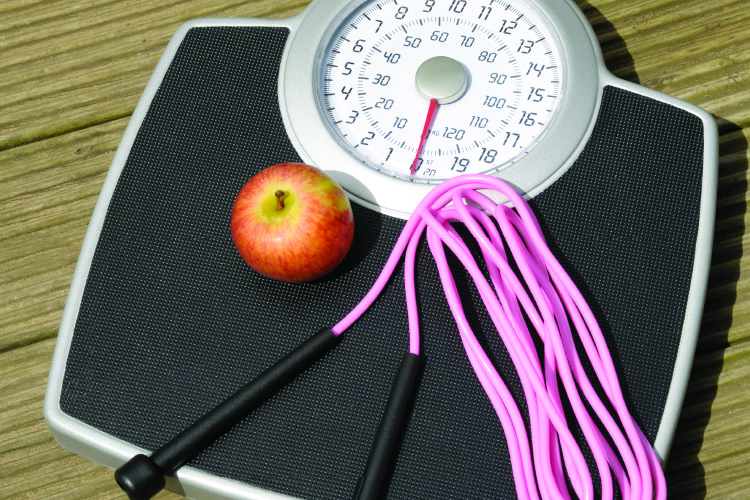In recent years, there has been a great deal of confusion and misconceptions about health and fitness. There is too much information floating around, conflicting opinions, and debates on what constitutes to be right and wrong. This could be a little overwhelming if you are thinking to get serious about weight loss and a total health revamp. All of these can be an obstacle and make a person feel punished by the very process which is supposed to improve life. So kick back, relax and let’s eradicate some of your qualms…
The most common of misconception often heard is about cardio and strength training.
“If you do cardio only, you won’t build muscle mass, and muscle burns more calories than fat. We want more muscle in our body than fat. So the strength training is what’s necessary to help with that.”
The subsequent question would be, “lifting weights is not good to do if you want to lose weight, because it will make you “bulk up.”
Well, lifting weights or doing strengthening activities like push-ups and crunches on a regular basis can actually help you maintain or lose weight. These activities can help you build muscle, and muscle burns more calories than body fat. So if you have more muscle, you burn more calories—even sitting still.
Doing strengthening activities 2 or 3 days a week will not “bulk you up.” Only intense strength training, combined with a certain genetic background, can build very large muscles. In addition to doing moderate-intensity physical activity (like walking 2 miles in 30 minutes) on most days of the week, try to do strengthening activities 2 to 3 days a week. You can lift weights, use large rubber bands (resistance bands), do push-ups or sit-ups, or do household or garden tasks that make you lift or dig. Strength training helps keep your bones strong while building muscle, which can help burn calories.
Hang on. There’s more…
Table of Contents
1. Fad diets can be effective, seems to be the best way to lose weight and keep it off
Fad diets often promise quick weight loss or tell you to cut certain foods out of your diet. You may lose weight at first on one of these diets. But diets that strictly limit calories or food choices are hard to follow. Most people quickly get tired of them and regain any lost weight.
- Fad diets may be unhealthy because they may not provide all of the nutrients your body needs.
- Losing weight at a very rapid rate (more than 3 pounds (1.36kg) a week after the first couple of weeks) may increase your risk for developing gallstones (clusters of solid material in the gallbladder that can be painful).
- Diets that provide less than 800 calories per day also could result in heart rhythm abnormalities, which can be fatal.
2. High-protein/low-carbohydrate diets are healthy ways to lose weight
The fact is long-term health effects of a high-protein/low-carbohydrate diet are unknown. But getting most of your daily calories from high-protein foods like meat, eggs, and cheese is not a balanced eating plan. You may be eating too much fat and cholesterol, which may raise heart disease risk. You may be eating too few fruits, vegetables, and whole grains, which may lead to constipation due to lack of dietary fibre. Following a high-protein/low-carbohydrate diet may also make you feel nauseous, tired, and weak.
3. I can lose weight while eating whatever I want
To lose weight, you need to use more calories than you eat. It is possible to eat any kind of food you want and lose weight. You need to limit the number of calories you eat every day and/or increase your daily physical activity. Portion control is the key. Try eating smaller amounts of food and choosing foods that are low in calories.
4. Low-fat or fat-free means no calories
A low-fat or fat-free food is often lower in calories than the same size portion of the full-fat product. But many processed low-fat or fat-free foods have just as many calories as the full-fat versions of the same foods—or even more calories. They may contain added sugar, flour, or starch thickeners to improve flavour and texture after fat is removed. These ingredients add calories.
5. Skipping meals is a good way to lose weight
Not really… Studies show that people who skip breakfast and eat fewer times during the day tend to be heavier than people who eat a healthy breakfast and eat four or five times a day. This may be because people who skip meals tend to feel hungrier later on, and eat more than they normally would. It may also be that eating many small meals throughout the day helps people control their appetites.
6. Fast foods are always an unhealthy choice and you should not eat them when dieting
Well that depends, fast foods can be part of a healthy weight-loss programme with a little bit of know-how. Avoid supersized combo meals, or split one with a friend. Sip on water or fat-free milk instead of soda. Choose salads and grilled foods, like a sandwich or small hamburger, grilled chicken breast. Fried foods, like french fries and fried chicken, are high in fat and calories, so order them only once in a while, order a small portion, or split an order with a friend. Also, use only small amounts of high-fat, high-calorie toppings, like regular mayonnaise, salad dressings, bacon, and cheese.
7. Nuts are fattening and you should not eat them if you want to lose weight
In small amounts, nuts can be part of a healthy weight-loss programme. Nuts are high in calories and fat. However, most nuts contain healthy fats that do not clog arteries. Nuts are also good sources of protein, dietary fibre, and minerals such as magnesium and copper. Enjoy small portions of nuts. One-half ounce of mixed nuts has about 84 calories.
8. Eating red meat is bad for your health and makes it harder to lose weight
Eating lean meat in small amounts can be part of a healthy weight-loss plan. Red meat, pork, chicken, and fish contain some cholesterol and saturated fat (the least healthy kind of fat). They also contain healthy nutrients like protein, iron, and zinc. Choose cuts of meat that are lower in fat and trim all visible fat. Lower fat meats include pork tenderloin and beef round steak, tenderloin, sirloin tip, flank steak, and extra lean ground beef. Also, pay attention to portion size. Three ounces of meat or poultry is the size of a deck of cards.
9. Losing more than 3 to 5 pounds a week should be your target
Well that is a pretty scary goal. Research suggests that losing 1/2 to 2 pounds a week by making healthy food choices, eating moderate portions, and building physical activity into your daily life is the best way to lose weight and keep it off. By adopting healthy eating and physical activity habits, you may also lower your risk for developing type 2 diabetes, heart disease, and high blood pressure.
10. High protein diet helps you lose those inches faster
High-protein/low-carbohydrate diets are often low in calories because food choices are strictly limited, so they may cause short-term weight loss. But a reduced-calorie eating plan that includes recommended amounts of carbohydrate, protein, and fat will also allow you to lose weight. By following a balanced eating plan, you will not have to stop eating whole classes of foods, such as whole grains, fruits, and vegetables—and miss the key nutrients they contain. You may also find it easier to stick with a diet or eating plan that includes a greater variety of foods.
* Eating fewer than 130 grams of carbohydrate a day can lead to the build-up of ketones in your blood. Ketones are partially broken-down fats. A build-up of these in your blood (called ketosis) can cause your body to produce high levels of uric acid, which is a risk factor for gout (a painful swelling of the joints) and kidney stones.
Ketosis may be especially risky for pregnant women and people with diabetes or kidney disease. Be sure to discuss any changes in your diet with a health care professional, especially if you have health conditions such as cardiovascular disease, kidney disease, or type 2 diabetes.
11. Starches are fattening and should be limited when trying to lose weight
Many foods high in starch, like bread, rice, pasta, cereals, beans, fruits, and some vegetables (like potatoes and yams) are low in fat and calories. They become high in fat and calories when eaten in large portion sizes or when covered with high-fat toppings like butter, sour cream, or mayonnaise. Foods high in starch (also called complex carbohydrates) are an important source of energy for your body.
12. Dairy products are fattening and unhealthy
Low-fat and fat-free milk, yogurt, and cheese are just as nutritious as whole-milk dairy products, but they are lower in fat and calories. Dairy products have many nutrients your body needs. They offer protein to build muscles and help organs work properly, and calcium to strengthen bones. In addition, they help to fight various diseases and ailments. Most milk and some yogurt are fortified with vitamin D to help your body use calcium. If you cannot digest lactose (the sugar found in dairy products), choose low-lactose or lactose-free dairy products, or other foods and beverages that offer calcium and vitamin D (listed below).
13. Would 350 ml of water be sufficient during workouts?
Do drink lots of water. Keep your body hydrated during exercise. When exercising strenuously, try to drink four to eight ounces every half hour to hour and avoid caffeine and alcohol while exercising which tend to dehydrate the body.
14. You can skip warm up and stretching, head right on to your training
Warm Up. People tend to shrug off this prelude to exercise, either giving it minimal time or bypassing it altogether. But just like cold dough, cold muscles won’t be as pliable to work with (without risking tears) as warmed ones. Try gentle movements, like walking, to prepare your muscles before leaping into a more rigorous workout. Stretch more. Stretching seems to be a ‘lost art,’ but it can improve range of motion and flexibility, and reduce the risk of muscle tightness and strain. Get the most from your stretch right after your workout, while your muscles are still warm.
As with everything, moderation is the key word. Do watch what you eat. Make sure you are getting a well balanced diet with adequate amounts of macronutrients (protein, carbohydrates and fat) and at least 13 kinds of vitamins and at least 20 kinds of minerals to keep the body nourished properly. Avoid fad diets. Do have fun! It’s easy to find excuses for not exercising if you aren’t having fun. Finding a workout you enjoy will help you stick with it so you see results…
Have a colourful day…
















